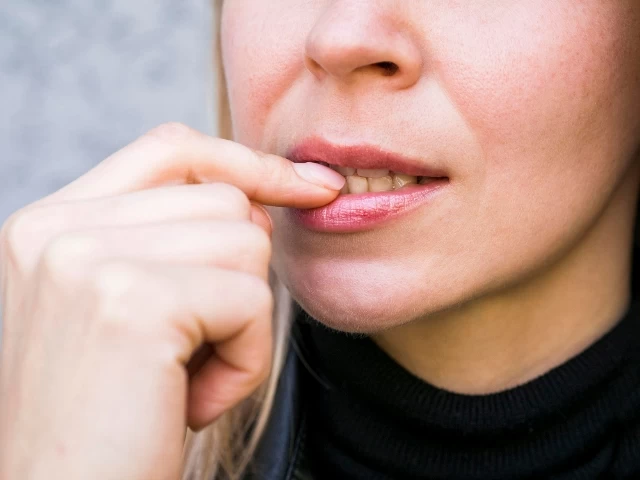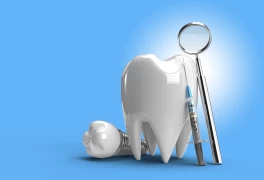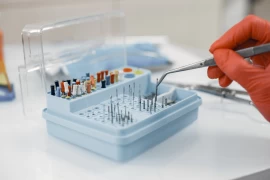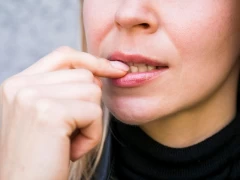
Don't Let Teeth Grinding Be Your Nightmare: Treatment for Bruxism
- Don't Let Teeth Grinding Be Your Nightmare: Treatment for Bruxism
- What Is Teeth Grinding (Bruxism)?
- What Are the Causes of Bruxism?
- What Are the Damages Caused by Bruxism?
- What Are the Treatment Methods for Bruxism?
- Masseter Botox Treatment for Bruxism
What Is Teeth Grinding (Bruxism)?
Bruxism, also known as teeth clenching or teeth grinding, is a condition where a person involuntarily clenches or grinds their teeth. It typically occurs during sleep but can also happen during the day. It can affect both children and adults.
What Are the Causes of Bruxism?
The exact cause of bruxism is not known, but it is believed to result from a combination of various factors. Here are some possible causes of bruxism:
• Stress and Anxiety: Bruxism is most commonly associated with psychological factors such as stress, anxiety, and emotional tension. Stressful life events, work pressure, financial problems, relationship issues, or emotional distress can trigger bruxism.
• Sleep Disorders: Sleep disorders like sleep apnea, snoring, or breathing problems during sleep can increase the risk of bruxism. Teeth clenching or grinding may be more common in individuals with respiratory issues during sleep.
• Dental and Jaw Structure: Improper alignment of teeth, jaw abnormalities, or missing teeth can increase the risk of bruxism. Mismatched or poorly aligned teeth can lead to improper distribution of pressure during chewing and biting.
• Genetic Factors: Some studies suggest that the risk of bruxism may be hereditary. Genetic factors may affect the proper functioning of jaw muscles and the nervous system, thereby increasing the risk of bruxism.
• Habits and Stimulants: Habits like excessive alcohol consumption, overuse of caffeinated beverages, or smoking can increase the risk of bruxism. Additionally, certain medications (e.g., antidepressants) or stimulants (e.g., amphetamines) can also trigger bruxism.
• Psychiatric Conditions: Certain psychiatric conditions such as depression, obsessive-compulsive disorder (OCD), or bipolar disorder can increase the risk of bruxism. These conditions can affect the severity of bruxism symptoms.
Bruxism usually occurs due to a combination of multiple factors and can vary in each individual. If you experience bruxism symptoms, it is important to consult a dentist to evaluate your condition.

What Are the Damages Caused by Bruxism?
If left untreated for a prolonged period, bruxism can cause damage to the teeth and jaw structure. The following are some potential damages caused by bruxism:
• Tooth Damage: Teeth clenching or grinding can result in wear, scratches, flattening, or fractures of the teeth. This can lead to surface erosion of the teeth and damage to the enamel layer. Tooth wear can cause sensitivity, cavities, and tooth loss.
• Jaw Problems: Bruxism can cause problems in the jaw joint (temporomandibular joint or TMJ) by applying excessive stress to the jaw muscles. This can manifest as temporomandibular joint disorder (TMJ disorder) with symptoms such as jaw pain, jaw joint sounds, jaw locking, or difficulty in opening and closing the mouth.
• Headaches: Constantly engaging the jaw muscles through bruxism can result in headaches. You may particularly experience headaches upon waking up in the morning. Bruxism can also trigger tension-type headaches due to pressure on the temporomandibular joint.
• Jaw Muscle Pain and Fatigue: Continuously clenching or grinding the jaw muscles can cause tension, pain, and fatigue in the jaw muscles. This can lead to discomfort during mouth opening, chewing, or speaking.
• Sleep Disorders: Bruxism, occurring during sleep, can negatively impact sleep quality. It can lead to frequent awakenings, insomnia, restless sleep, and other sleep disorders.
• Facial Pain and Ear Pain: Bruxism can lead to facial pain and ear pain due to excessive tension in the jaw muscles. These pains can be felt in the cheeks, ears, and around the jaw.
Bruxism can cause permanent damage to the teeth, jaw joint, and jaw muscles if it persists for a long time.
What Are the Treatment Methods for Bruxism?
The treatment for bruxism can vary depending on the severity of the symptoms and underlying causes. Here are some commonly used methods for bruxism treatment:
• Night Guard or Bite Splint: This is the most commonly used treatment for bruxism. A dentist can prepare a custom-fitted night guard or bite splint to protect your teeth. These devices help to cushion your teeth and relax the jaw muscles during clenching or grinding.
• Stress Management and Relaxation Exercises: Since stress and anxiety can trigger bruxism, stress management techniques and relaxation exercises can be beneficial. Techniques such as yoga, meditation, deep breathing, muscle relaxation exercises, and stress-reducing activities can help alleviate bruxism symptoms.
• Dental Alignment Treatment: If bruxism is caused by dental problems, orthodontic treatment may be considered to align the teeth properly. Corrective appliances such as braces or clear aligners can ensure proper alignment of the teeth.
• Botulinum Toxin (Botox) Injection: In this method, also known as masseter Botox, botulinum toxin is injected into the jaw muscles to alleviate bruxism symptoms. These injections reduce the muscle contractions in the jaw, thereby reducing clenching or grinding symptoms.
• Improvement of Sleep Patterns: Correcting sleep patterns can help alleviate bruxism symptoms. Establishing a regular sleep routine, using relaxation techniques before sleep, and improving the sleep environment (quiet, dark, and comfortable room) can be helpful.
• Jaw Muscle Massage and Hot/Cold Therapy: Massaging the jaw muscles or applying hot/cold compresses can help relax the jaw muscles and alleviate bruxism symptoms. These treatments reduce muscle tension and promote relaxation.
To determine the most suitable treatment method for relieving your bruxism symptoms, it is important to consult a dentist or a healthcare professional specialized in sleep disorders. The treatment generally focuses on symptom control, prevention of tooth and jaw damage, and overall relief.

Masseter Botox Treatment for Bruxism
Masseter Botox is a treatment option used to alleviate bruxism symptoms. The masseter muscle is a jaw muscle that controls jaw movements and becomes overactive during teeth clenching or grinding. Weakening this muscle with botulinum toxin (Botox) helps reduce bruxism symptoms.
Masseter Botox treatment is typically performed by a dermatologist or an aesthetic medicine specialist. Botox injections are administered at specific points in the masseter muscle. These injections prevent the muscle from contracting excessively and limit jaw movements, thus reducing clenching or grinding symptoms.
Masseter Botox can be effective in reducing bruxism symptoms. However, this treatment method does not eliminate the symptoms completely, and its effects are temporary. It can provide relief for a duration of a few months, but the effects may diminish over time. Therefore, repeated Botox injections may be required.
Masseter Botox can be an option when evaluated and recommended by a specialist. If you have bruxism symptoms, it is important to consult a dentist to discuss appropriate treatment options.





